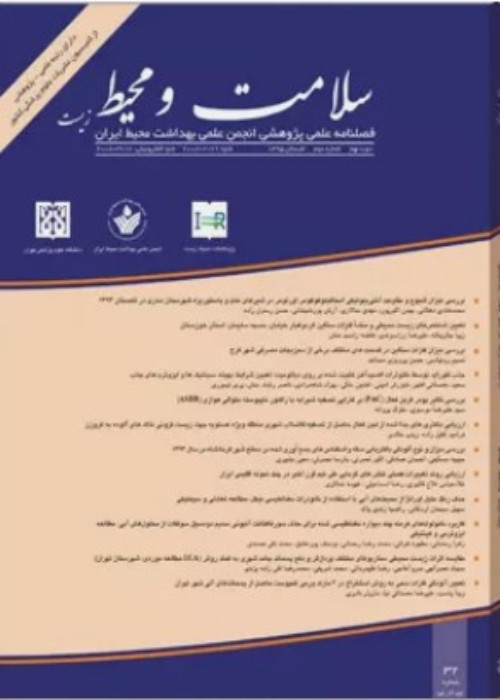Effect of irrigation with treated wastewater on lead and cadmium accumulations in soil and sweet pepper plant
Limited water resources in arid and semi-arid regions are one of the major limiting factors in agricultural production. Thus, unconventional water resources, such as urban treated wastewater, may be used for irrigation. Application of wastewater to the soil may cause accumulation of heavy metals (HMs). Soil pollution causes uptake of these metals by plants and their entrance to the food chain. In the present greenhouse research, concentration variations of HMs (lead (Pb) and cadmium (Cd)( in soil and sweet pepper (Capsicum annuum) plant were investigated.
The experiment was conducted as a completely randomized design with three replications and irrigation with different wastewater treated (well water, wastewater treatment and diluted wastewater). To evaluate the effects of different irrigation treatments on soil, parameters of acidity (pH), electrical conductivity (EC), the concentration of heavy metals Pb and Cd in soil were studied. Additionally, for the effects of irrigation treatments on sweet pepper plant, parameters of biomass weight, fresh and dry weight and Pb and Cd concentrations (in branches, fruits and roots) were measured. The amount of Pb and Cd in the pepper were measured by ICP-OES. The obtained average concentrations were compared using one-way analysis of variance (ANOVA), and the Duncan test was used to determine the differences between groups (p <0.05). The independent t-test was also used to investigate the difference in concentrations of Pb and Cd in soil and water (p <0.05).
The results of chemical analysis of soil and pepper showed that irrigation with wastewater did not cause a significant increase in the concentration of Pb and Cd in the soil and in the branches, fruits and roots of the pepper. The concentration of Pb and Cd in the soil and in the branches, fruits and roots of the pepper was within the allowable and standard concentration range. The difference in lead and cadmium concentrations in the soil before planting was not significant; however, at the end of the study period, the Pb concentration in pepper was higher than the Cd concentration. The use of wastewater increased the fresh and dry weight of branches, fruits and roots of the pepper.
The results showed that Pb and Cd concentration in roots and aerial parts of pepper plant was not increased significantly as a result of wastewater irrigation (p <0.05). The results of this study are limited to one growing season and by the continued use of municipal wastewater, the concentration of Pb and Cd in the soil and then in the plant may exceed the standard. Especially in the case of Pb, which seems to have shown a slight tendency to increase relative to the primary soil and the pepper. Therefore, the continuation of this study is recommended to evaluate the long-term effects of Bushehr municipal treated wastewater on the concentration of heavy elements in soil and plants, and soil properties. Overall, it should be acknowledged that based on technical recommendations, the use of treated wastewater are not recommended.
- حق عضویت دریافتی صرف حمایت از نشریات عضو و نگهداری، تکمیل و توسعه مگیران میشود.
- پرداخت حق اشتراک و دانلود مقالات اجازه بازنشر آن در سایر رسانههای چاپی و دیجیتال را به کاربر نمیدهد.



